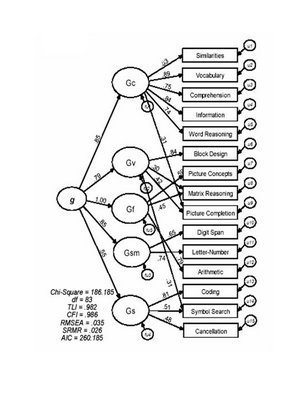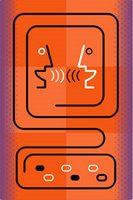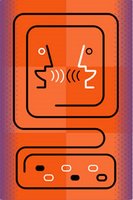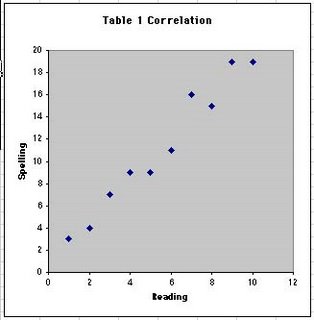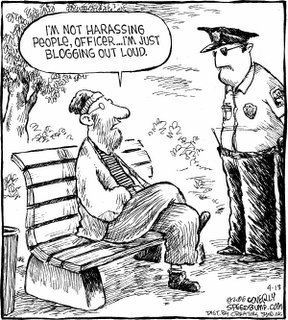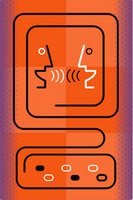
The following is a
guest blog post by
Joel Schneider (Clinical psychologist, Illinois State University), a member of
IQs Corner Virtual Community of Scholars project. Joel reviewed an article by
Calvo (2004) that investigated the relative contribution of vocabulary (Gc-VL), retrieval fluency (Glr-FI), and working memory (Gsm-MW) to reading comprehension (Grw-RC) [
Click here for definitions of CHC theory codes]
- Calvo M. G. (2004). Relative contribution of vocabulary knowledge and working memory span to elaborative inferences in reading. Learning and Individual Differences, 15, 53-65.
In evaluation reports, clinicians often make statements such as, “Susie’s low working memory appears to interfere with her reading comprehension.” It is true that working memory deficits do appear to cause reading comprehension problems but it is not exactly clear how.
A recent study (
Calvo, 2004) investigated how different cognitive abilities might be related to different aspects of reading comprehension. This study had participants read pairs of sentences in which a “predictive inference” might occur. To illustrate, here is a pair of sentences that I made up:
- As Brad pulled out the blue math worksheet he had worked on so hard last night, he noticed that everyone else was turning in a yellow worksheet. He had done the wrong homework assignment on accident!
Notice how the first sentence has enough information to allow the reader to anticipate the revelation in the second sentence. Previous research suggests that making these predictive inferences is an effortful (i.e., consumes limited attentional resources) process that seems to occur late in the reading process (about 1 second after the initial gaze fixation).
Using eye-tracking methods to measure the duration and location of gaze fixations of participants (from a Spanish undergraduate sample) as they read these types of sentences, some inferences can be made about how different cognitive abilities might relate to reading comprehension. Calvo found that different cognitive weaknesses were associated with different reading behaviors:
Cognitive Weaknesses/Associated Reading Behaviors
- Slow access speed/Long gaze fixations on all parts of the sentences.
- Small vocabulary /Freq. looking back while rdg first half of the 2nd sentence
- Low working memory /Freq. looking back while rdg 2nd half of the 2ndsentence
The first finding makes perfect sense: people with slower “access speed” (long-term memory retrieval fluency in CHC terms) need to look at words longer to retrieve their meanings from memory before moving forward. Thus, retrieval fluency is a general efficiency factor related to automatized processes that occur before inferences are made.
The other two findings are intriguing. Why would vocabulary be related to looking backward while reading the first half but not the second half of the second sentence? Likewise, why would working memory be related to the opposite pattern?
Although Calvo’s interpretation is more complex than is indicated here, I’ll do my best to summarize: While reading the first part of the second sentence, people with larger vocabularies have already found words to conceptualize the essence of their predictive inference and thus do not need to look back when their hunch is confirmed.
After the entire second sentence has been read, any additional information contained in the second sentence needs to be integrated with the initial inference. People with high working memory ability are able to hold a mental representation of that inference in their heads longer while simultaneously processing new information. They do not need to look back to the first sentence as often as people with “leaky” working memories.
Thus, if Calvo is correct,
both vocabulary and working memory are related to making predictive inferences while reading but they are important at different stages of the inferential process. Vocabulary facilitates the ease and speed of making initial inferences whereas working memory facilitates the “tying together” of new information with initial inferences.Abstract- Eye fixations were assessed during the reading of continuation sentences confirming inferences suggested by a preceding context sentence. In multiple regression analysis, individual differences in available prior vocabulary knowledge, working memory span, and speed of access to prior word knowledge served as predictors of eye fixations. Accessibility speed was associated with first-fixation time and gaze duration across all sentence regions. Vocabulary knowledge was associated with reduced looks-back from the target word that represented the inference in the continuation sentence. Working memory span was associated with reduced gaze duration and looks-back from the final word of the continuation sentence. It is concluded that accessibility is a general reading efficiency factor. In contrast, both vocabulary knowledge and working memory make specific, although delayed, contributions to inferences: Vocabulary knowledge facilitates the selection of linguistic representations for the inference; working memory helps to integrate meanings in situation model construction of the inference.
Technorati tags: learning disabilities. CHC theory. psychology. intelligence. cognition. education. educational psychology. iq testing. psychological testing. intelligence theory. reading comprehension. Gsm. working memory. vocabulary. Gc. Glr. retrieval fluency.
 I've now read two books on blogging. The first, by Hugh Hewitt, provided much of the initial impetus I needed to start my blog. The second, Naked Conversations, is a much better (and less politically-focused) book and is recommended reading to anyone who wants to better understand the blogphere.
I've now read two books on blogging. The first, by Hugh Hewitt, provided much of the initial impetus I needed to start my blog. The second, Naked Conversations, is a much better (and less politically-focused) book and is recommended reading to anyone who wants to better understand the blogphere.
